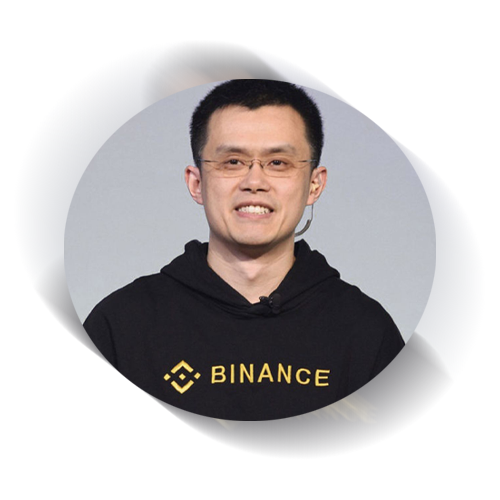


Changpeng Zhao, is the founder of and runs Binance, one of the worlds most popular Crypto Currency trading platforms in the world. He is an active social media influencer, predominately on Twitter and is regarded as a centric figure in the blockchain and crypto currency industry.
Part of his view as CEO, and the key driver of blockchain and cryptocurrencies is the decentralised aspect of the industry – is that there is a need for a centralised exchange, which is what Binance is. His belief is because there needs to be a way for the flow of money towards a cryptocurrency by means of using traditional currency, alas fiat.
Given the nature of the workplace has evolved, particularly due to COVID his belief is that productive and meaningful work can be done not necessarily at an office or a company’s headquarters but remotely from home or anywhere in the world.
Changpeng wakes up knowing that the day will be different to the last but that it won’t be boring to the least. He commences his day of work by checking his phone for messages from fellow employees and schedules according to any agendas that may be required to be set, in doing so it’s important in his role as CEO to be adaptive. Although a CEO, he will still provide a level of customer service. There was a time he would limit his audience to LinkedIn where it came to providing an update to the customer base, but as time has marched on it became more of a necessity to be transparent on social media such as Twitter as those in the crypto sphere would consider them to be an influencer. Ensuring their day is effectively spent running the organisation they would schedule no more than three meetings during the day, where a meeting would run for 15-, 30- or 45-minute intervals. As a CEO he always finds the value of continuous learning, whether being a language or a new facet to understand.
Q: What kinds of people does the IT professional interact with? Are they other IT professionals? Clients? Investors? The general public?As part of their role as CEO, Changpeng interacts with a broad spectrum of individuals in not just within their organisaiton but the macro environment aswell. From engaging with customers on Twitter to the President of El Salvador, Nayib Bukele – who has been a prominent figure in championing for legitimising Bitcoin as legal tender and driving adoption globally, Changpeng maintains consistent messaging about the importance of decentralised finance.
Q: Where does the IT professional spend most of their time?As COVID came into being and a pandemic been declared, the norm of working from home has become more prevalent, as it’s demonstrated that effective work can be done remotely. Binance has multiple offices located worldwide, but Changpeng likes the idea of being able to work from anywhere, as they find the accessibility of Airbnb and Uber to explore new cities and help further expand the company and decentralised finance’s reach.
Q: What aspect of their position is most challenging?The challenging part of their role operating a popular cryptocurrency exchange is catering to the expectations of their community – as the frequent request to listing a certain project holds the prospective customer’s motive to make a significant financial gain whereas Binance’s core values are about the quality of the project, and given the volume of projects and tokens that are created, only 0.01% of projects actually end up being listed on the exchange, on top of the challenges with catering to the interests of its customers, more serious challenges face Changpeng Zhao and Binance are regulations. The definition of what whether cryptocurrencies can be determined as a security by the SEC has really hampered the industry in a scope to really class it as what some call a ponzi scheme, and to move away from that stigma. Considering that anyone can mint a token on the Binance Smart Chain damages the legitimacy of any project and it asks the question if it’s because of this reputation of “less than desirable coins” being easily accessible and created on its network, does this damage its seriousness of an institution?